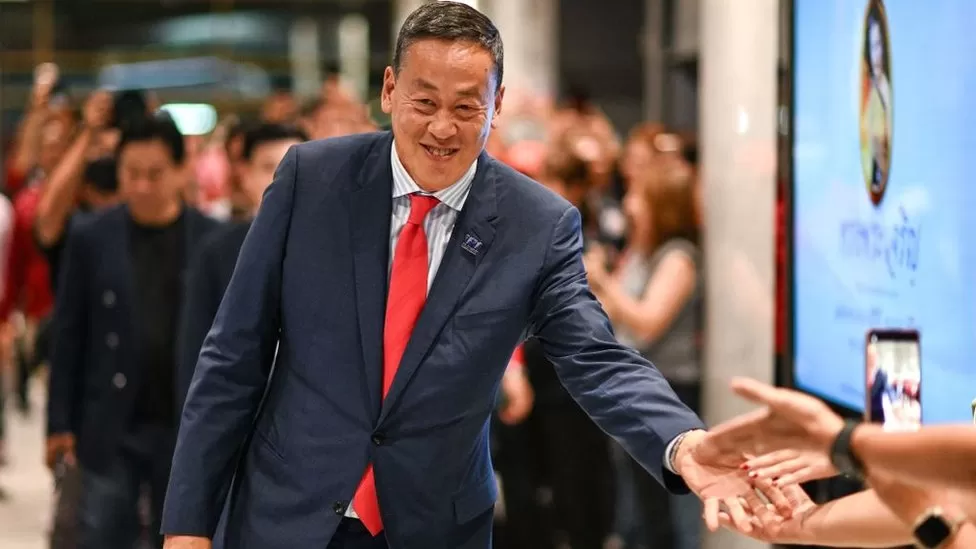Thaksin’s return seals grand Thai political bargain

One question everyone was asking when fugitive former prime minister Thaksin Shinawatra returned to Thailand: how long would he spend in jail?
We now know the answer: just over 12 hours.
According to Thailand’s department of corrections, Mr Thaksin was taken to a civilian hospital at midnight in order to monitor his heart condition.
It is expected that he will remain there, in his own private wing or floor, as he prepares to petition King Vajiralongkorn for a pardon to set aside the eight-year prison sentence on three charges imposed while he was absent. The Supreme Court in Bangkok confirmed this shortly after he arrived.
Mr Thaksin’s 15-year exile is not an isolated event. This is part of a grand political bargain. The pieces of the jigsaw are being put in place to end the epic power struggle between the telecom tycoon and his populist Pheu Thai party, and Thai conservative groups supporting the military and monarchy.
A new threat has emerged in the form of the progressive and youthful Move Forward party, which has brought both sides together.
Thaksin’s return coincided with the election of Pheu Thai’s candidate as prime minister. With the help of a coalition including parties that were once Mr Thaksin’s bitterest enemies, property developer Srettha Thavisin was approved by a substantial majority.
Thaksin’s arrival several hours before the vote suggests he was confident of the result. This deal between once irreconcilable adversaries was solid, and he knew he would enjoy the protection of having his own party in power in the end.
More than three months after the election, Thailand finally has a government. Yet Thais can be forgiven for thinking this is not what they voted for. Move Forward, which won the most seats, was blocked from forming a government by the military-appointed senate.
Most of the parties from the outgoing, military-backed administration, however, are included in it – even those led by two of the coup-makers who ousted the last Pheu Thai government in 2014, as well as those responsible for killing dozens of pro-Thaksin protesters in 2010.
This will be a bitter pill for Pheu Thai’s grassroots supporters, and many say they will stop supporting the party. The new government is also likely to allocate strategically important ministries like defence and interior to the conservative parties as part of the grand bargain. When Pheu Thai encounters opposition from its coalition partners, it may be forced to abandon its promises of reform, such as amending the military-drafted constitution.
In May, Move Forward stunned everyone, including its own young candidates, with its election victory, so this is a dismal result for many Thais.
“So the people voted for the number one party, only for it to be in opposition?”, tweeted one exasperated Twitter user.
A second person wrote, “It’s like winning a world cup on penalties.”. That’s not something to be proud of.
Another said, “I have never regretted voting for Move Forward.”. He added, “At least it showed some people’s true colors. The next election will be a landslide for Move Forward!”
In anger, Pheu Thai, which initially pledged to join a Move Forward-led coalition, has been accused of selling out.
Mr Thaksin’s election-winning machine was never a progressive or radical party, as Move Forward aspires to be.
A populist party with brilliantly marketed policies, it raised the living standards of previously neglected parts of the Thai population and had an unassailable advantage over its rivals for 20 years.
However, it was always pragmatic, not ideological. It has always been influenced primarily by the Shinawatra family, which has remained its primary source of funding and its most important decision-maker.
Since the 1990s, a Shinawatra party has not won the largest share of seats in parliament. The experience was a wake-up call.
